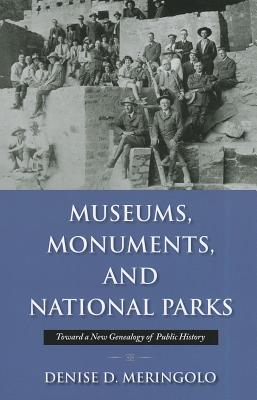 Denise Meringolo, associate professor of history, has won this year’s National Council on Public History Book Award for her book Museums, Monuments, and National Parks: Toward a New Genealogy of Public History.
Denise Meringolo, associate professor of history, has won this year’s National Council on Public History Book Award for her book Museums, Monuments, and National Parks: Toward a New Genealogy of Public History.
The National Council on Public History is an organization dedicated to making the past useful in the present and to encouraging collaboration between historians and their public.
In Museums, Monuments, and National Parks, Meringolo traces the roots of the public history field, showing that the roots of public history reach back to the nineteenth century, when the federal government entered into the work of collecting and preserving the nation’s natural and cultural resources. Meringolo shows that the emergence of the education-oriented National Park Service history program in the 1920s and 1930s gave public history an institutional home that grounded professional practice simultaneously in the values of the emerging discipline and in government service, but that even thereafter, tensions between administrators in Washington and practitioners on the ground at National Parks, monuments, and museums continued to define and redefine the scope and substance of the field. The process of definition persists to this day, Meringolo argues, as public historians establish a growing presence in major universities throughout the United States and abroad.
In selecting Meringolo’s book for the award, the committee said that “Meringolo turns the historian’s trained eye on the historical profession itself and in so doing has produced an outstanding work on the public practice of the history profession…[,] bring[ing] new insights to the origins and craft of public history. Public historians have always had to tink hard about self-definition and this is often conceived in relation to historians within the academy. Meringolo reminds us that what makes public history so distinctive, and so potentially powerful, is that its origins lie not within either side of the university/non-university dichotomy, but rather within a truly collaborative effort among a variety of public and private institutions to render the idea of ‘nation’ meaningful to American society at large. By examining the origins of public history, Meringolo’s book can reframe and reinvigorate debates about how history can remain in the public sphere, and about the types of partnerships which can be created to sustain history’s relevance.”
